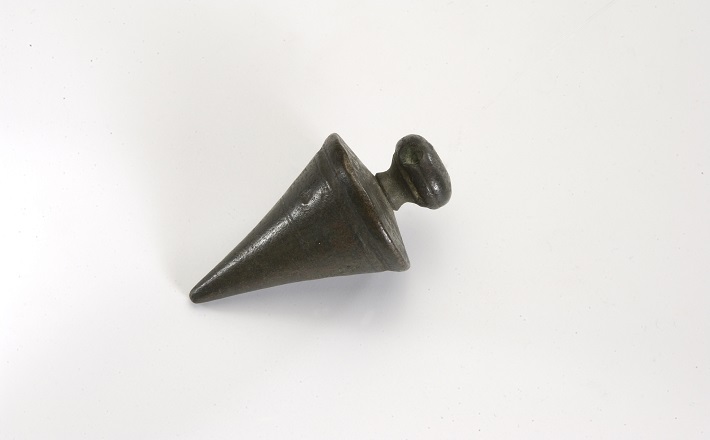Commentary on Amos 7:7-15
Prophets are unpopular, and Amos is no exception.
In this passage, we see a fragment of a conflict between Amos and the high priest Amaziah. The religious establishment is not happy with Amos’ message, and it wants him to disappear.
Context: inequality and injustice
Amos prophesies to the Northern Kingdom (Israel) during the long and expansive reign of Jeroboam II (786-746 BCE). This was a time of prosperity for the North. Amos is concerned about the concentration of wealth among urban elites, and he repeatedly refers to their luxury goods as indicators of their moral decay. In one passage he openly mocks their luxuries:
Alas for those who lie on beds of ivory,
And lounge on their couches,
And eat lambs from the flock,
And calves from the stall;
Who sing idle songs to the sound of the harp,
And like David improvise on instruments of music;
Who drink wine from bowl,
And anoint themselves with the finest oils,
But are not grieved over the ruin of Joseph! (Amos 6:4-6)
This material prosperity seems to have come at the expense of the poor, and points to a growing gap between the rural poor and wealthier landowners: “they sell the righteous for silver, and the needy for a pair of sandals — they who trample the head of the poor into the dust of the earth, and push the afflicted out of the way” (Amos 2:7). Economic injustice — structural and systemic injustice that perpetuates social inequality — is his central concern.
God roars for justice
Readers of Amos often zero in on God’s anger, and rightly so. God’s deep concern for human injustice is expressed in Amos in language of judgment and threat: “The lion has roared; who will not fear? / The Lord God has spoken; / who can but prophesy?” (Amos 3:8) But God is not angry for the sake of being angry, and God’s anger is not in opposition to God’s love.
As theologian James Cone writes, “Most theological treatments of God’s love fail to place the proper emphasis on God’s wrath, suggesting that love is completely self-giving without any demand for obedience. Bonhoeffer called this ‘cheap grace.’”1 God’s love demands righteousness, and breaches of God’s call to justice and love cause God grief. As Amos is keen to show us, God is not indifferent to human suffering, oppression, and injustice. Cone goes on: “The wrath of God is the love of God in regard to the forces opposed to liberation of the oppressed.”2 God’s judgment, for Amos, is a manifestation of relationship with a living God, a God of passion who deeply cares.
Insiders and outsiders
Amos sees a vision of a “plumb line” beside a wall (Amos 7:7). The word usually translated “plumb line” is obscure in Hebrew, though its meaning is clear to Amos: it symbolizes the judgment of God for Israel’s failure to fulfill its moral obligations to God. So now Amos preaches, in public, that King Jeroboam will die by the sword, and Israel will go into exile (Amos 7:9; 11; 17). He anticipates the assault of Assyria and the fall of the Northern Kingdom to this military power in 722 BCE.
Amaziah is outraged at this message: “O seer, go, flee away!” (Amos 7:12). As high priest, he is a religious authority who speaks on behalf of his temple as well as his King. Amaziah is this text is an insider, and has a vested interest in institutional stability. This makes Amos’ message intolerable — he tells Amos to go make his living as a professional prophet elsewhere.
But Amos insists that he is not a professional prophet. He claims to be an outsider: “I am no prophet, nor a prophet’s son; but I am a herdsman, and a dresser of sycamore trees, and the LORD took me from following the flock, and the LORD said to me, ‘Go, prophesy to my people Israel,’” (Amos 7:14-15).
It might be easy for contemporary readers to identify with Amos. But the text calls for rigorous self-examination. Aren’t we, like Amaziah, honestly committed to causes we believe in? Aren’t we loathe to see them fail? When are we “insiders,” so much so that we cannot hear the voice that calls for change? Whose voices, sounding from “outside,” need urgently to be heard?
“Let justice roll down like waters”
Amos’ emphasis on systemic social injustice made him a favorite of Martin Luther King, Jr. In his letter from Birmingham jail (1963), King writes to well-intentioned white pastors who have urged King not to act too quickly, not to push his agenda for racial equality with urgency, and not to employ strategies of civil disobedience. King, in response, calls for extremism:
Was not Jesus an extremist for love: ‘Love your enemies, bless them that curse you, do good to them that hate you, and pray for them which despitefully use you, and persecute you.’ Was not Amos an extremist for justice: ‘Let justice roll down like waters and righteousness like an ever flowing stream.’3
King’s letter echoes Amos’ encounter with Amaziah: a call for social revolution met with resistance by well-meaning religious authorities. For Amos, religious piety is rendered meaningless by a lack of justice (“I hate, I despise your festivals…” Amos 5:21-24). For worshipping communities today, this text is a searching call for self-reflection. When does our well-meaning comfort mask indifference? When does our lack of love and justice render our own piety meaningless? How do the institutions that benefit us build dams against the deep rivers of justice?
Notes:
- James Cone, “God is Black,” Lift Every Voice: Constructing Christian Theologies from the Underside, rev. and exp. ed. Edited by Susan Brooks Thistlethwaite and Mary Potter Engel (Maryknoll, NY: Orbis, 1998), 108.
- Emphasis added. Cone, “God is Black,” 109.
- http://www.africa.upenn.edu/Articles_Gen/Letter_Birmingham.html. Accessed May 31 2018.


July 15, 2018